Tennessee has been divided over a bill in the state Senate that would ban the study of reparations for descendants of slaves.
The bill, which will be voted on in the House next Wednesday, has generated some adverse reactions in the state.
Chief among the bill’s critics is the Rev. Earle Fisher, senior pastor of Abyssian Baptist Church.
This week, the Memphis pastor launched a petition against the bill and in just two days it amassed more than 500 signatures.
Speaking to NewsNation, Rev. Fisher said the decision to eliminate any future studies on reparations was not motivated by a desire to save money.
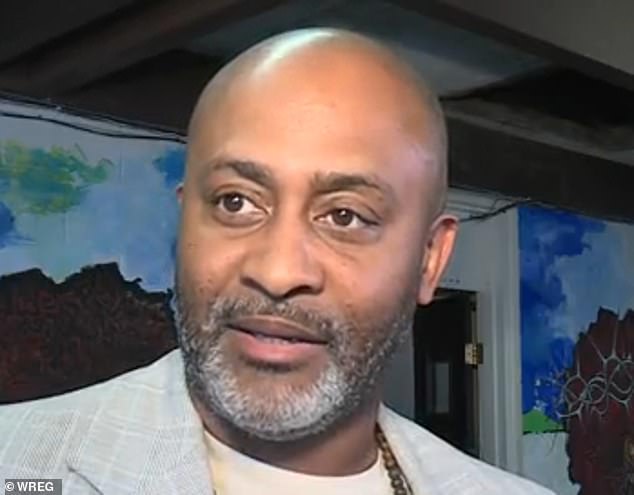
The Rev. Earle Fisher (pictured), senior pastor of Abyssian Baptist Church, launched a petition against Tennessee’s bill that would prohibit the state from investigating reparations.
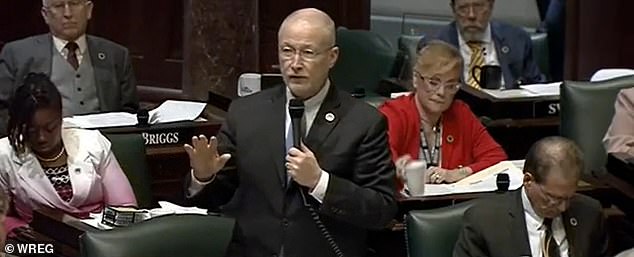

State Sen. Brent Taylor, who sponsored the bill, believes reparations are an issue that falls within the purview of the federal government, but not local government.
‘It’s not about money. It’s about ideology. “It’s about political power,” Fisher said.
He continued: ‘These are people who are hell-bent on maintaining racial and economic inequalities across the state and are scared to death of the truth coming out. So they don’t want anyone to study it.’
State Sen. Brent Taylor, a Republican representative from Shelby County and the bill’s sponsor, has argued that reparations should not be addressed at the local level.
Senator Taylor believes that the issue of reparations must be resolved on the national stage and that a local government does not have the ability to remedy such a significant problem.
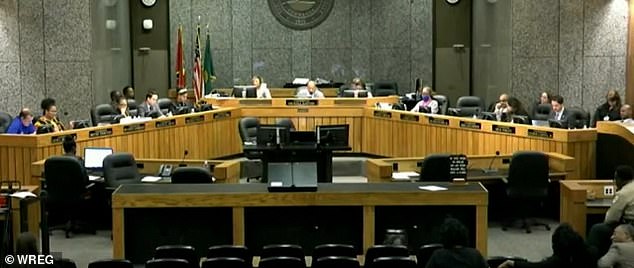

The bill, which would ban future study of state reparations, has been hotly debated and will be voted on in the House next week.
‘I will make it very clear that our vote today does not judge reparations. “That is a very significant issue and very important to many people in our country,” Taylor said.
He went on to say that the issue of reparations “belongs to the federal government and does not belong to our cities and counties.”
“I think it’s inappropriate for our city and county tax dollars to go toward an issue like this,” Taylor said.
Amendment No. 1, which was added to the bill and passed in the Senate a year ago, is the source of the controversy.
It states that it “rewrites this bill to prohibit a county, municipality, or metropolitan government from expending funds for the purpose of studying or disbursing reparations.”
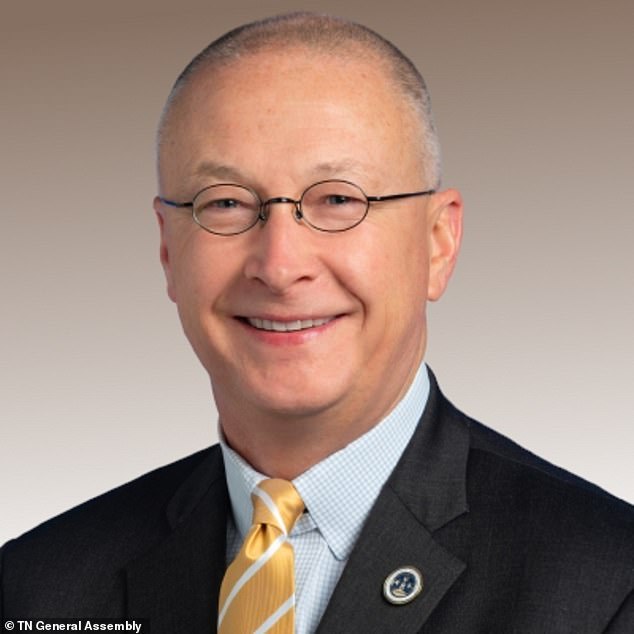

Senator Taylor (pictured) has stressed that the state is not voting on the question of whether reparations are justified or not, but on the question of whether it is the responsibility of local government.
The amendment defines “reparations” as “money or benefits provided to persons who are descendants of persons who were enslaved.”
Rev. Fisher insists that if the state has a budget surplus, it should use that money for a worthy cause, such as studying reparations.
‘If the state of Tennessee has hundreds of millions, if not billions, of surplus dollars, surplus means that we are taking care of all of our financial responsibilities, and that is the amount of money we have left. We can even call it expendable income,’ Fisher said.
“There are other entities and organizations that receive 25 times more for doing something that most of us would probably consider much less significant.”
Last year, county commissioners in Tennessee, which includes Memphis, voted to launch a feasibility study to examine reparations for descendants of slaves.
The Shelby County Board of Commissioners voted on the measure, which allocated $5 million to fund a feasibility study to “establish, develop and implement repairs.”
The commission’s eight black members voted in favor of the measure, while the five white members voted against or abstained, citing financial concerns about the $5 million allocation.
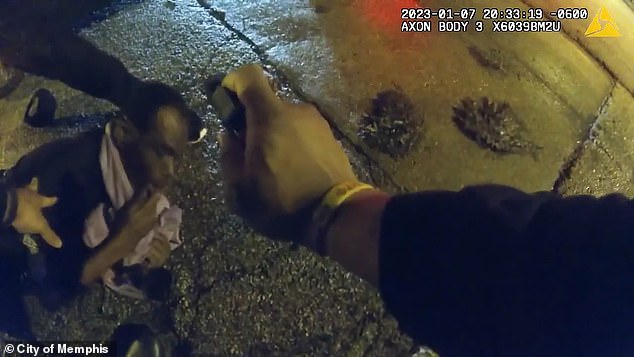

The Shelby County reparations study, which was just the latest of similar initiatives in many U.S. cities and states, followed the police killing of Tire Nichols, a black man, in Memphis.
The reparations study, which was just one of many similar studies conducted in the United States, came a month after black police officers killed Tire Nichols, a black man, in Memphis.
Many of the reparations study’s supporters referenced Nichols’ death, including Commissioner Miska Clay Bibbs, who said, “My people die every day.” That’s why I support him.”
“It’s clear that something needs to be done. “The only thing this resolution is trying to do is say we have to address what’s happening in Shelby County in a different way,” Bibbs said.
Commissioners who opposed the measure cited budget constraints, legal concerns and fears that it would cause division in the community.
“I just don’t think this is the best way to move the community forward in a unified way, and that’s my reasoning, as well as the financial aspect,” said Commissioner Brandon Morrison, who voted “no.”
Before calling the vote, Commission President Mickell Lowrey addressed his colleagues and said: ‘Commissioners, it is okay to disagree. “We all represent different communities and we are not supposed to agree, our constituents do not all have the same problems or concerns.”
“Our diversity makes us better, so I appreciate all the comments and respect everyone,” he added.
Shelby County’s population is approximately 52% black, 41% white, 6% Hispanic and 2% Asian, according to county government data.
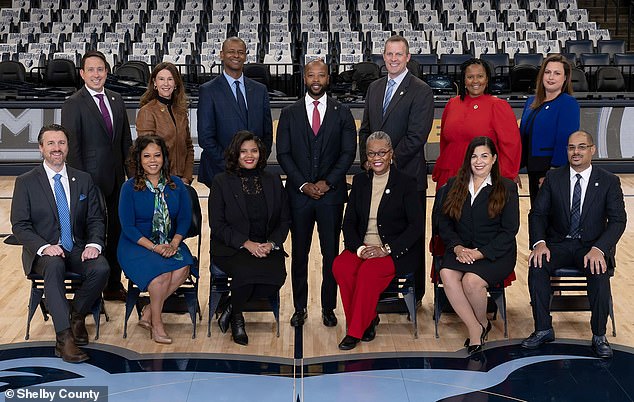

The Shelby County Board of Commissioners voted to begin a feasibility study to examine reparations for descendants of slaves. The commission’s eight black members voted in favor of the measure, while the five white members voted against or abstained.
This year, the county budget projected total functional expenditures of approximately $1.5 billion, with 29% dedicated to education and 25% to criminal justice.
The approved reparations study resolution directed the state to examine five areas: access to affordable housing and home ownership, affordable health care, systemic disenfranchisement in the criminal justice system, career opportunities and financial literacy, and generational wealth.
The resolution used the National Black Coalition for Reparations in the American definition of “reparations.”
They defined reparations as “a process of reparation, healing and restoration of a people injured due to their group identity and in violation of their fundamental human rights by governments, corporations, institutions and families.”
Last year, Shelby County was just one of several cities to consider reparations for slavery, an issue that proved divisive in many areas.
Other places like Boston, Massachusetts, St Paul, Minnesota, and St Louis, Missouri, as well as California cities San Francisco and Los Angeles, created task forces and panels to come up with their own repair plans.

